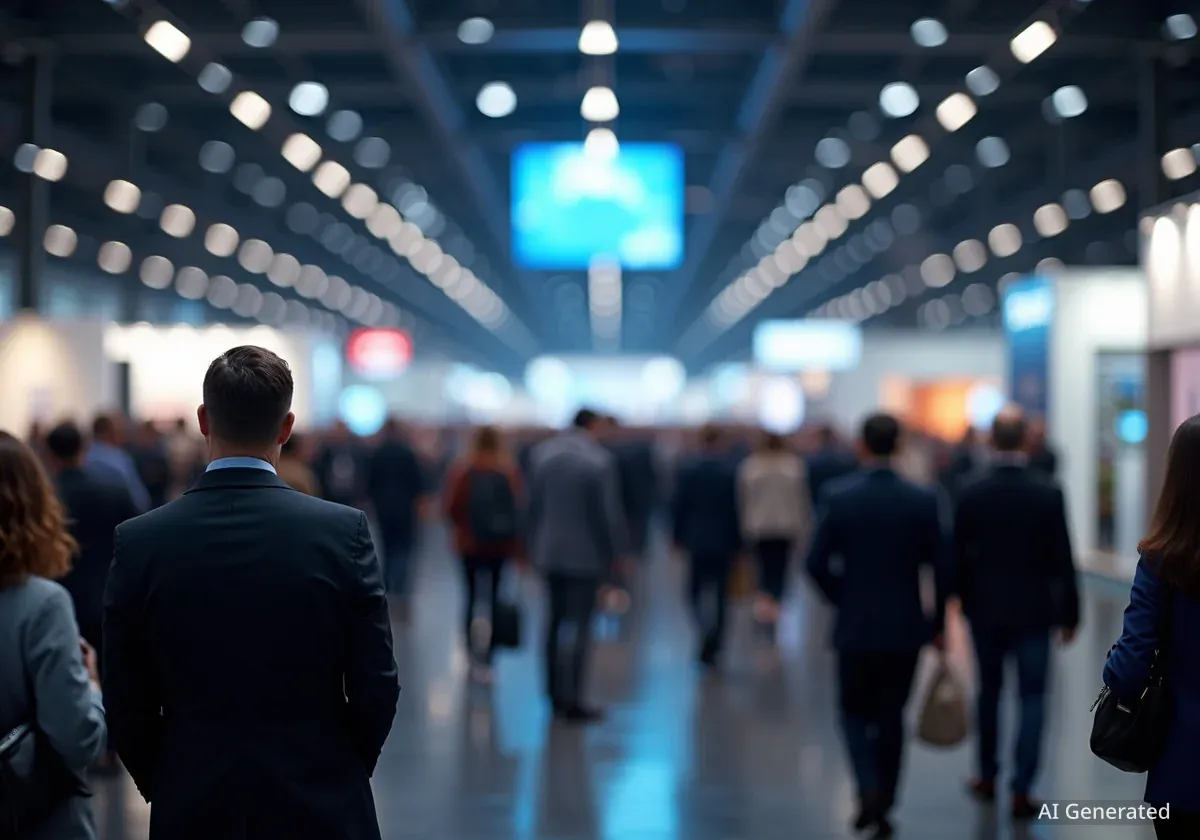Sydney has successfully hosted the 76th International Astronautical Congress (IAC), drawing nearly 8,000 delegates from 99 countries to discuss the future of space exploration. The event, held from September 29 to October 3, 2025, solidified Australia's position on the global space stage and set a new standard for international collaboration under the theme “Sustainable Space: Resilient Earth.”
The week-long congress, organized by the International Astronautical Federation (IAF), brought together the world's leading space agencies, scientists, policymakers, and industry experts. Key discussions focused on space sustainability, Earth observation, and the long-term future of humanity in space, culminating in a series of high-level meetings and public outreach events that engaged thousands.
Key Takeaways
- Nearly 8,000 delegates from 99 countries attended the IAC 2025 in Sydney.
- The central theme was “Sustainable Space: Resilient Earth,” focusing on long-term viability in space and its benefits for our planet.
- A record 40 heads of space agencies convened for the IAF Global Space Leaders Summit.
- The congress featured over 3,500 speakers across more than 200 technical sessions.
- Leadership changed hands at the IAF, with Gabriella Arrigo of the Italian Space Agency appointed as the new president.
A Landmark Event for Australia
The 76th International Astronautical Congress marked a significant moment for Australia's growing space sector. Hosted by the Space Industry Association of Australia (SIAA) and co-hosted by the Australian Space Agency (ASA) and the New South Wales Government, the event showcased the nation's capabilities and ambitions.
Enrico Palermo, Head of the Australian Space Agency, highlighted the congress's impact. “Today we forge Australia as a proud spacefaring nation,” he stated, emphasizing the collaborations and partnerships formed during the week. The event provided a platform for local industry to connect with international partners, fostering opportunities for future growth and innovation.
IAC 2025 by the Numbers
- Delegates: Nearly 8,000
- Countries Represented: 99
- Speakers: Over 3,500
- Exhibitors: Nearly 200
- Public Day Attendance: Over 11,000
The bustling exhibition hall featured nearly 200 booths, where companies and agencies displayed the latest in satellite technology, launch systems, and space-related services. This direct interaction between established players and emerging startups is a cornerstone of the IAC, driving the industry forward.
Focus on a Sustainable Future in Space
The theme “Sustainable Space: Resilient Earth” was more than just a tagline; it was a guiding principle for the entire congress. Discussions repeatedly returned to the need for responsible stewardship of the space environment, addressing issues like orbital debris and the long-term viability of activities in Earth's orbit and beyond.
The conversation expanded beyond environmental concerns to include the sustainability of human life on long-duration missions and the ethical considerations of space exploration. Sessions explored a wide array of topics, from the application of artificial intelligence in space systems to the integration of Indigenous knowledge in understanding our planet and the cosmos.
A clear message emerged from the hundreds of technical sessions and panels: the challenges ahead require unprecedented levels of cooperation. Experts called for greater interdisciplinary collaboration, increased knowledge sharing between nations, and the involvement of non-traditional sectors to solve complex problems.
High-Level Diplomacy and Policy Shaping
The IAC 2025 was a critical venue for space diplomacy. The second edition of the IAF Global Space Leaders Summit brought together 40 heads of space agencies, making it the largest gathering of its kind ever held in Australia. These closed-door meetings focused on shared challenges, including space security and international norms of behavior.
Simultaneously, the 15th IAF International Meeting for Ministers and Members of Parliaments (MMoP) convened. Over 40 high-level policymakers, including nine government ministers, discussed how space technology can address global challenges like climate change and disaster management. These forums are vital for aligning technical capabilities with national and international policy objectives.
Recognizing Excellence and Inspiring Generations
A highlight of the congress was the celebration of outstanding contributions to the space field. The prestigious IAF World Space Award was presented to two recipients: Jeff Bezos of Blue Origin for his contributions to commercial spaceflight, and the Chang’e 6 Mission team for their historic lunar sample return mission.
The awards ceremony underscored the dual nature of modern space exploration, recognizing both pioneering private enterprise and landmark achievements by national space programs.
The IAF Excellence in International Cooperation Award was given to Pascale Ehrenfreund, President of the Committee on Space Research (COSPAR). Her work exemplifies the collaborative spirit that the IAF seeks to promote.
Public engagement was also a major success. The IAC 2025 Public Day attracted a record-breaking crowd of over 11,000 people, including 1,500 students. The event featured appearances by more than 30 international astronauts, who shared their experiences and inspired attendees with their stories of exploration and discovery.
Passing the Torch to Future Hosts
As the congress concluded, the International Astronautical Federation announced key leadership and future event locations. Gabriella Arrigo, Director of International Affairs at the Italian Space Agency (ASI), was appointed as the new IAF President for a three-year term. Her leadership will guide the organization as it navigates a rapidly evolving space landscape.
Upcoming IAC Locations
- IAC 2026: Antalya, Türkiye
- IAC 2028: Samarkand, Uzbekistan
In a symbolic Closing Ceremony, the IAF flag was passed to the delegation from the Turkish Space Agency (TUA), which will host the IAC 2026 in Antalya. Looking further ahead, the IAF General Assembly selected Samarkand, Uzbekistan, as the host city for the IAC in 2028, reflecting the federation's commitment to expanding its global reach.
The success of IAC 2025 in Sydney has not only reinforced the city's capacity to host major international events but has also firmly established Australia as a key partner in the global space community, ready to contribute to a sustainable and resilient future both on Earth and beyond.





